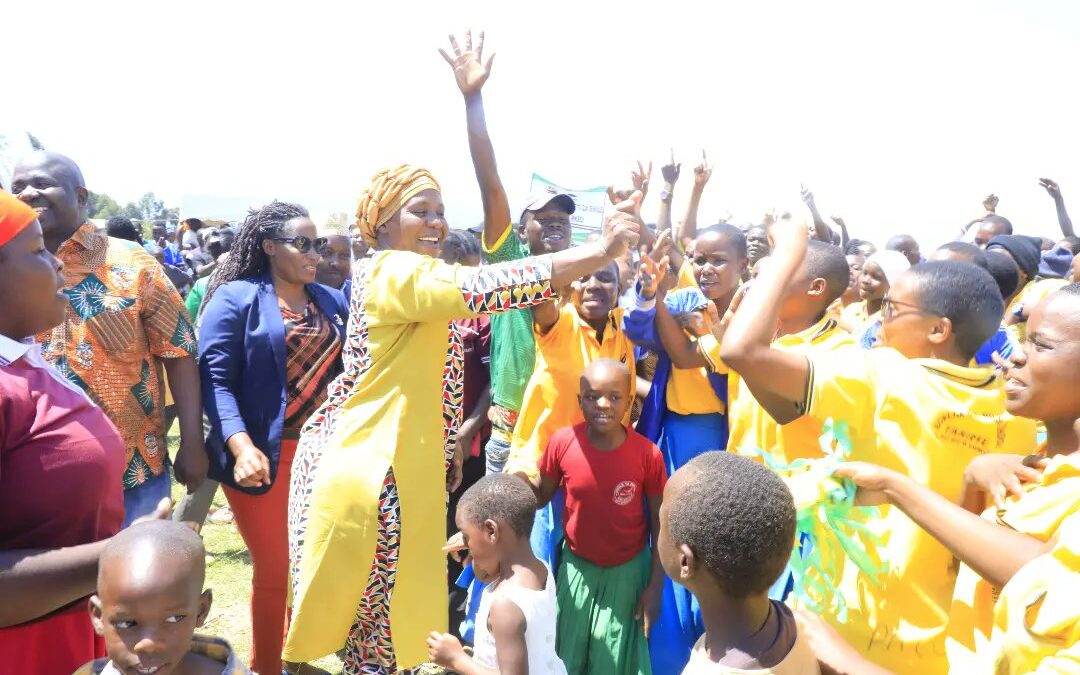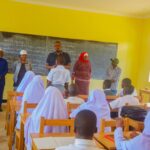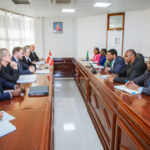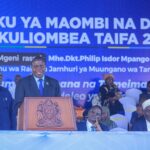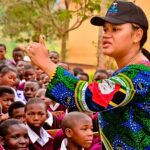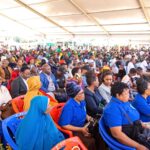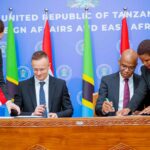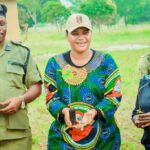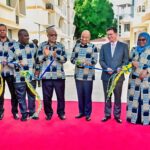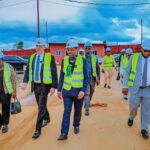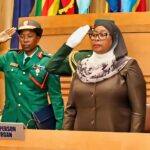Tanzania’s Sixth Phase Government Prioritizes Citizen Empowerment, Gender Equality, and Violence Prevention
The Mara Region in Tanzania has witnessed considerable advancement in the realms of education, healthcare, and economic development, largely attributable to the unwavering commitment of the regional government and the invaluable assistance extended by the national government. The region has invested in the construction of new educational facilities and the enhancement of teacher training programmes, resulting in a notable increase in literacy rates and a discernible improvement in the quality of education. In the field of healthcare, the government has constructed new hospitals and health centres and has provided training and resources to healthcare workers, resulting in improved healthcare outcomes and a reduction in mortality rates. Furthermore, the region has implemented policies and programmes to support the agricultural, tourism and mining sectors, which have resulted in increased economic growth and foreign investment. These endeavours exemplify the government’s dedication to enhancing the quality of life for its citizens and fostering a more prosperous and equitable future for all Tanzanians.

Sixth Phase Government Embarks on a Mission to Empower Citizens and Promote Gender Equality
The Government of Tanzania, under the guidance of President Dr. Samia Suluhu Hassan, has initiated a comprehensive programme aimed at enhancing the capabilities of its citizens and advancing gender equality. This ambitious agenda represents a fundamental component of the Sixth Phase Government’s overarching development strategy, which acknowledges the indispensable role of an empowered and gender-equal society in fostering sustainable progress and prosperity.
The Ministry of Social Development, Gender, Women and Special Groups is the driving force behind this mission, led by the dynamic Minister Hon. Dr. Dorothy Gwajima. Minister Gwajima has delineated a comprehensive plan that seeks to:
It is imperative to enhance the quality of education and skills development, ensuring that all citizens have access to educational and training opportunities of the highest caliber.
* Enhance nutritional and health outcomes through investment in healthcare infrastructure and programmes designed to promote the well-being of all Tanzanians.
* Facilitate the development of self-reliance and economic empowerment, equipping citizens with the requisite tools and resources to become financially independent and contribute to their communities.
* Reinforce the safeguards for women and children, guaranteeing their protection and access to justice.
* It is imperative to engage men in the fight against violence, as they have a pivotal role to play in creating a gender-equal and violence-free society.
The government’s commitment to the empowerment of citizens and the advancement of gender equality is clearly demonstrated in its budgetary allocations and policy initiatives. Notable financial commitments have been made to key sectors, including education, healthcare, social protection, and women’s empowerment programmes. Moreover, the government has enacted progressive legislation and policies with the objective of promoting gender equality and protecting the rights of women and girls.
The Sixth Phase Government’s mission to empower citizens and promote gender equality represents a courageous and indispensable stride towards the construction of a more equitable, just, and prosperous Tanzania. By investing in its people and addressing the underlying causes of inequality, the government is establishing the basis for a future in which all Tanzanians can achieve their full potential and contribute to the nation’s development.
Minister Gwajima Outlines Comprehensive Strategy to Combat Violence and Foster Social Cohesion
The Minister of Social Development, Gender, Women and Special Groups, Dr. Dorothy Gwajima, has presented a comprehensive strategy to combat violence and foster social cohesion in Tanzania. The strategy, which aligns with the Sixth Phase Government’s commitment to the creation of a safe and harmonious society, encompasses a range of initiatives aimed at addressing the root causes of violence and promoting peaceful coexistence.
Minister Gwajima underscored the pivotal role that violence, in all its manifestations, plays in impeding the advancement and well-being of individuals and communities. She emphasised the government’s unwavering commitment to the eradication of violence and the creation of a society in which all citizens can live in peace and security.
The strategy proposed by Minister Gwajima encompasses the following fundamental components:
In order to prevent violence, it is necessary to implement educational programmes and campaigns which raise awareness about the causes and consequences of violence, and which promote positive social norms and behaviours. The implementation of educational programmes and campaigns is an effective method of increasing awareness of the causes and consequences of violence. Furthermore, such initiatives can play a pivotal role in promoting positive social norms and behaviours.
* Protection: The strengthening of legal frameworks and law enforcement mechanisms is essential for the protection of victims of violence. Furthermore, the provision of support services, such as shelters, counselling and legal aid, is vital in this regard.
* Response: It is essential to guarantee that victims of violence are able to access timely and effective medical, psychological, and legal assistance.
* Rehabilitation: The provision of support and opportunities for perpetrators of violence to effect behavioural change and reintegrate into society.
Additionally, Minister Gwajima underscored the necessity of involving men and boys in the effort to combat violence. She observed that men and boys are instrumental in influencing social norms and behaviours, and that their participation is vital for the establishment of a gender-equal and violence-free society.
The government’s strategy to combat violence and foster social cohesion is a comprehensive and multifaceted approach that addresses the issue from multiple perspectives. By allocating resources to initiatives aimed at preventing violence, protecting victims, responding to incidents, and rehabilitating offenders, the government is establishing a comprehensive framework for fostering peace and justice in Tanzania.
The Minister of Social Development, Gender, Women and Special Groups, Hon. Dr. Dorothy Gwajima, has presented the government’s comprehensive strategy to enhance citizen empowerment, advance gender equality, and foster a violence-free society. During a visit to the Tarime district of the Mara region, Minister Gwajima articulated the government’s conviction that positive thinking and moral development are indispensable cornerstones for a flourishing society.
The government’s strategy encompasses a series of initiatives, including:
* The advancement of educational and skills development initiatives
* The enhancement of nutritional and health outcomes
* The promotion of self-reliance and economic empowerment
* The reinforcement of protection mechanisms for women and children
* The engagement of men in the fight against violence
Minister Gwajima emphasised the necessity of a violence-free environment for the realisation of sustainable development. She announced that the government is engaged in collaborative efforts with various stakeholders to address the underlying causes of violence, including economic deprivation, harmful traditional practices, and limited access to education and opportunities.
Progress in the Mara Region
The Mara Region in Tanzania has witnessed considerable advancement in recent years, particularly in the realms of education, healthcare, and economic development. This progress is attributable to the unwavering commitment of the regional government, led by Regional Commissioner Ally Hapi, and the unwavering support of the national government under President Dr. Samia Suluhu Hassan.
Education
The Mara Region has identified the expansion of access to quality education for all children as a priority, and has accordingly allocated significant resources towards this end. The government has constructed new educational facilities and upgraded existing ones, thereby ensuring that a greater number of children have the opportunity to receive primary and secondary education. Furthermore, initiatives have been implemented to enhance the quality of education, including the introduction of training programmes for teachers and curriculum development. Consequently, there has been a notable increase in literacy rates, with a concomitant rise in the number of students completing secondary school and pursuing higher education.
Healthcare
The Mara Region has made considerable progress in enhancing healthcare outcomes for its residents. The government has allocated financial resources towards the construction of new hospitals and health centres, and has provided training and resources to healthcare workers. These initiatives have led to an enhanced provision of fundamental healthcare services, including maternal and child health, immunisation, and HIV/AIDS treatment. Consequently, infant and maternal mortality rates have decreased, and the population is living longer, healthier lives.
Economic Development
The Mara Region is characterised by a diversified economy, encompassing agricultural, tourism and mining sectors. The government has implemented a series of policies and programs with the objective of providing support to these sectors and fostering economic growth. To illustrate, the government has provided subsidies to farmers, invested in infrastructure development, and promoted tourism through marketing campaigns. These initiatives have resulted in enhanced agricultural yield, augmented tourism receipts, and a surge in foreign investment.
The advancement achieved in the Mara Region serves as an exemplar of the government’s unwavering dedication to enhancing the quality of life for its citizens. By allocating resources to the advancement of education, healthcare, and economic development, the government is establishing the infrastructure for a more prosperous and equitable future for all Tanzanians.
In conclusion, the progress made in the Mara Region provides an exemplar of the outcomes that can be achieved through the application of dedicated leadership and collaborative efforts. The government’s unwavering commitment to improving the lives of its citizens has resulted in significant advancements in the realms of education, healthcare and economic development. The Mara Region is now regarded as an exemplar of hope and a demonstration of the capacity of effective governance to effect transformative change. As the region continues to advance, it is positioned to serve as a model for other regions in Tanzania and beyond. It seems inevitable that the government’s commitment to sustainable development and inclusive growth will result in further achievements in the years to come. The future of the Mara Region is promising, and its inhabitants can anticipate a more favourable future.
Tanzania Media
- Kanyala Ferry Launch: TEMESA’s New Service for 15,000 Sengerema Residents (Mwanza) - 18 August 2025
- Russia-Tanzania Naval Cooperation: How the Smolny Training Ship Boosts Dar es Salaam’s Maritime Security - 18 August 2025
- Tanzania’s ICGLR Commitment: Stabilising the DRC & Great Lakes Region - 18 August 2025

